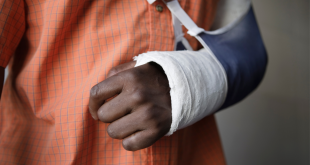Introduction
Personal injury litigation is a complex legal process that involves seeking compensation for injuries sustained due to the negligence or wrongful actions of another party. In such cases, the burden of proof rests on the plaintiff to demonstrate that the defendant’s actions were the direct cause of the injuries and resulting damages. To strengthen their case, attorneys often rely on the invaluable support of expert witnesses. These experts provide specialized knowledge, insights, and opinions that can significantly influence the outcome of a personal injury lawsuit.
Defining Expert Witnesses
An expert witness is an individual with specialized knowledge, training, education, or experience in a particular field relevant to the case at hand. This person is called upon by either the plaintiff or the defendant to provide objective and unbiased opinions that can assist the court in understanding complex technical or scientific aspects of the case.
Expert witnesses are not ordinary witnesses who testify about firsthand observations. Instead, they are qualified professionals who present their opinions, analysis, and conclusions based on their expertise. The court relies on these opinions to make informed decisions and judgments about the evidence presented.
Types of Expert Witnesses
Expert witnesses can come from various professional backgrounds, depending on the nature of the attorneys personal injury case. Some common types of expert witnesses include:
- Medical Experts: These professionals, such as doctors, surgeons, or specialists, provide opinions on the extent of the plaintiff’s injuries, the necessary medical treatments, and the long-term implications of the injuries.
- Accident Reconstruction Experts: These experts analyze the circumstances surrounding the accident to recreate and explain how it occurred. They may use scientific methods, engineering principles, and simulations to demonstrate liability.
- Economic Experts: Also known as forensic economists, these experts assess the financial impact of the injuries on the plaintiff’s life. They calculate lost wages, future earning capacity, and the cost of ongoing medical care.
- Psychologists or Psychiatrists: In cases involving emotional distress or mental health issues resulting from the injury, these experts can provide insights into the psychological effects on the plaintiff’s well-being.
The Role of Expert Witnesses
- Presenting Complex Information: Personal injury cases often involve technical or medical details that can be challenging for the jury or judge to understand fully. Expert witnesses break down this complex information into layman’s terms, making it more accessible and comprehensible.
- Establishing Causation: One of the critical aspects of a personal injury case is establishing a clear link between the defendant’s actions and the plaintiff’s injuries. Expert witnesses can provide evidence linking the defendant’s negligence or actions to the harm suffered by the plaintiff.
- Providing Independent Opinions: Expert witnesses are expected to provide unbiased opinions based on their expertise. This impartiality adds credibility to their testimony and enhances their value in the eyes of the court.
- Strengthening the Case: Expert witnesses can make a significant difference in the outcome of a personal injury case. Their testimony can strengthen the arguments put forth by either party, providing the necessary evidence to support their claims.
Challenges of Expert Witness Testimony
While expert witnesses are essential assets in personal injury litigation, their testimony can face challenges from opposing counsel. Some common challenges include:
- Cross-Examination: The opposing counsel may attempt to discredit the expert’s qualifications, methodology, or conclusions during cross-examination.
- Bias or Conflict of Interest: Any perceived bias or conflict of interest on the part of the expert witness can undermine their credibility and influence the court’s judgment.
Conclusion
Expert witnesses play a vital role in personal injury litigation by providing specialized knowledge and insights that can be critical in determining the outcome of a case. Their testimony helps the court make informed decisions based on technical, scientific, or medical information that may otherwise be challenging to understand. By leveraging the expertise of these professionals, attorneys can present compelling arguments and increase the likelihood of achieving a favorable outcome for their clients in personal injury lawsuits.
 Posting Point
Posting Point

